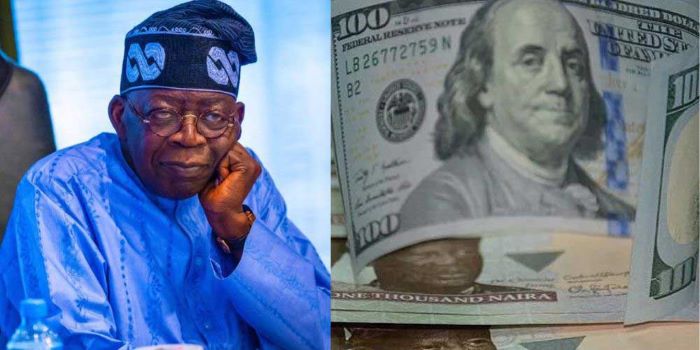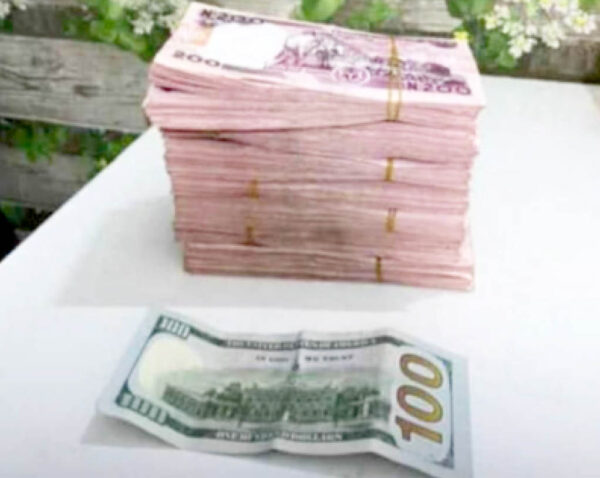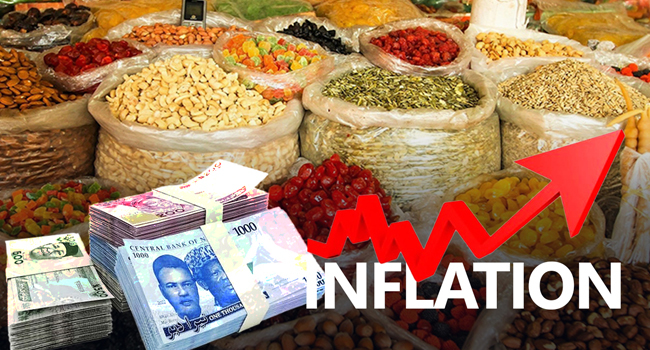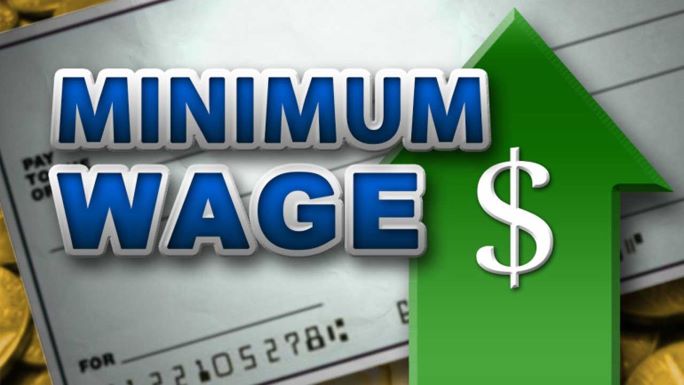Way out of the many pains of Tinubu’s Naira devaluation
The Naira has lost approximately 69.47% of its value
 By Nnanke Harry Willie
By Nnanke Harry Willie
Without doubt, President Bola Tinubu’s attempt at the unification of exchange rates on June 14, 2023 as implemented by the Central Bank of Nigeria (CBN) has had a most profoundly negative impact on the economy and citizens. A huge population of Nigerians have been thrown into debilitating poverty with many experiencing the biblical gnashing of teeth in real time.
The immediate impact of Tinubu’s decision led to an immediate and significant devaluation of the Naira, with the currency losing about 25% of its value in a single day. Since President Bola Ahmed Tinubu’s administration began in May 2023, the Naira has lost approximately 69.47% of its value. According to data from the FMDQ, the value of the local currency dropped from N747.76/$1 on September 22, 2023, to N1,541.52/$1 as of September 20, 2024, representing a 51.49% depreciation when the current CBN governor, Olayemi Cardoso took charge.
Pharmaceutical multinationals left due to Naira devaluation, says PMG-MAN
Nigerians in Dire Economic situation
On a recent trending radio programme, a Nigerian man called in to pour out his heart out over his dire financial situation. This man who serves as a metaphor for the average Nigerian citizen lost his job over a year ago, when the multinational company he worked for shut down operations and everything he attempted to do to get new employment or start a business kept failing as the general economic environment kept moving from bad to worse.
He lamented that he had been borrowing from friends and loved ones to pay school fees, pay bills and even feed. He said his wife was doing her best to support but they kept falling short as prices of everything kept rising in geometric progression. He said his young daughter on a certain day asked him why he had stopped buying even one loaf of bread when he used to buy 3 leaves in the past when he returned from work. He lamented further that the situation had affected his self-worth and had negatively impacted his intimacy with his wife.
The above is the testimony of millions of middle-class homes who are being thrust down the social ladder by the new realities of the Tinubu economic experiment. As the middle class are quickly being obliterated, the poor are getting even poorer with many families skipping meals, being unable to get medical treatment when they are sick, and some being driven to commit suicide.
The Nigerian economy has never been this bad…and this is mainly the direct result of an ill-advised and badly implemented floating of the Naira, Nigeria’s currency at a time when virtually all the fundamentals did not support such a move!
 Background of the Naira Devaluation
Background of the Naira Devaluation
Nigeria’s Naira has experienced significant devaluation over the decades, beginning with the Ibrahim Babangida administration in the 1980s. This era introduced the Structural Adjustment Program (SAP), marking the transition from a fixed exchange regime to an attempt at a market-driven exchange rate, leading to the Naira’s initial plunge against the US Dollar. At Nigeria’s independence in 1960, the Naira (then the pound) traded at a strong value, but economic shifts and policy changes over the years have led to its steady decline, some would say to its bastardisation.
By May 29, 2023, when President Bola Ahmed Tinubu took office, the Naira stood at around N465 per US Dollar in the official market, with parallel market rates soaring about N750 to the Dollar. Tinubu’s administration quickly floated the Naira, ostensibly seeking to bridge the gap between official and parallel rates, but this decision accelerated depreciation to nearly N1000 per Dollar in the parallel market by late 2023. Presently it has depreciated by over N1,300. While this otherwise ‘bold’ policy sought transparency, the speed, scale and timing of the policy have led to phenomenal depreciation that has inflicted unmitigated hardships on the people…and it is getting worse!
The Pains…
High Energy Costs
Pain: Unlike what many people think, the exponential cost of petroleum products including fuel and diesel is not caused mainly by the removal of subsidies but is the direct effect of the continuous slide or the devaluation of the Naira. This significantly impacts energy costs by increasing fuel prices through higher import expenses and inflationary pressures while also raising electricity tariffs due to increased operational costs for power companies. These factors contribute to a challenging economic environment characterized by reduced consumer purchasing power and stagnation in economic growth and even shutdown of industries, especially SMEs.
Solution: Addressing these issues requires a wholesome strategic management of the exchange rate and targeted policies aimed at stabilizing both fuel and electricity prices while fostering investment in the energy sector. Being a Petroleum producing nation, Nigeria needs to immediately put in place a policy that stops the importation of petroleum products. It has been shocking to see the orchestrated pushback by oil marketers in obvious cohort with embedded interests in government in insisting on continuous unfettered importation of PMS and diesel in the name of ‘competition’ rather than patronizing Dangote Refinery, fixing the NNPC refineries and supporting existing modular refineries as well as encouraging more local production. It is shocking that even in our current state of FOREX anomie, we can even contemplate spending scarce Dollars to import a vital product that we have more than enough capacity to produce. President Tinubu should immediately introduce a policy to halt further importation of PMS and diesel and the effect on the the Naira and economy would be phenomenal!
 High Inflation and Reduced Purchasing Power
High Inflation and Reduced Purchasing Power
Pain: As the Naira weakened, import costs have soared (and keep on soaring), leading to high inflation in food, fuel, and essential goods. Households struggle to afford basic needs, leading to significant reductions in the quality of life.
Solution: The government should stabilize food prices by increasing local production incentives, offering subsidies on essentials, and reducing import dependence. A transparent commodity reserve policy would help manage sudden spikes in essential goods prices. To this end, the Tinubu administration must tackle head-on, the insecurity across the country that has kept farmers away from farmlands or turned them into slaves of bandits as they are exploited, extorted, maimed and even killed on a regular basis. The notorious extortion syndicates of various agencies of governments including the Police, Customs, States, LGAs and olcal politicians that mount checkpoints across the states and force haulage drivers to pay illegal levies must also be put to an end so that food prices can come down.
Erosion of Savings and Middle-Class Wealth
Pain: As the currency devalues, the savings of middle-class Nigerians erode, diminishing purchasing power and forcing many into poverty.
Solution: Introduce and implement robust fiscal policies that will end the scourge of wastage in government and MDAs in federal and state governments. It has become clear that the Tinubu administration buoyed by the National Assembly live in a different reality where they spend outrageously on non-essential and questionable subheads while giving scant regard and spending precious little on the things that matter to the people. Tinubu should also encourage stable investment options for the middle class. Furthermore, introducing inflation-protected bonds or investment instruments can help safeguard citizen wealth against devaluation impacts. However, the environment for enterprise and industrialistion must be put in place so that people can have greater opportunities of making money rather than simply struggling to eke a living and survive as is presently the case.
Business Closure and Downsizing
Pain: Multinational companies in sectors like manufacturing and FMCG have downsized or left Nigeria, as currency instability disrupts profit margins and foreign currency repatriation.
Solution: Implement policies to reassure foreign investors, such as clearer repatriation guidelines and incentives for reinvestment in Nigeria. Offering tax reliefs for companies remaining in Nigeria would also help retain multinational presence. The encouragement must however begin with our own indigenous multinationals such as Dangote Group. No foreign or local investor will contemplate investing in Nigeria after seeing the shabby, almost bellicose manner in which the Tinubu government has treated Dangote Refinery, an investment of about 20 billion USD. Investors should be courted and encouraged, not harangued, disparaged and discouraged.
https://brandeconomy.com.ng/we-lost-n50-billion-to-flexible-exchange-policy-dangote/
SME Survival Challenges
Pain: Small and medium-sized enterprises face input cost inflation, skyrocketing rent, low consumer demand and astronomical operational costs. Many are unable to continue operations, leading to job losses.
Solution: Tinubu must reassess his policies and ensure that a wholesome, fully integrated strategy is developed and implemented to stimulate growth and productivity. The current fixation on generating revenue for government through taxes, tarrifs and levies by government without a complementary effort to boost producuity and promote industry is a recipe for eventual economic doom. The government should provide accessible credit facilities with low-interest rates and flexible terms. Additionally, policies to encourage SMEs to partner for local sourcing would reduce dependency on foreign materials.
Increased Cost of Debt Servicing
Pain: Public debt, often denominated in foreign currencies, has grown more burdensome, as debt servicing in US Dollars has become more expensive, straining national finances. The sad reality is that the government still has a hug appetite for acquiring more debts even as there is precious little on ground to justify the depoyment of such debts.
Solution: Tinubu should adopt the Crown Prince Mohammed bin Salman model and recoup stolen resources from privileged Nigerians who have amassed stupendous wealth illegally over the years. Recall that hundreds of Saudi royals, billionaires and senior government officials were detained in an extraordinary power play by the heir to the throne, Crown Prince Mohammed bin Salman. NBS reports that the involuntary guests were told they had to sign away large chunks of their assets to be released. Nigeria should also renegotiate foreign debts, extending terms to allow more manageable payments. Increasing exports and implement policies to truly attract foreign direct investments.
Surge in Poverty and Hunger
Pain: Food insecurity is on the rise. In the first quarter of 2024, 100 million Nigerians were food insecure, up from 66.2 million in the first quarter of 2023. As of March 2024, 18.6 million Nigerians were experiencing acute hunger, and 43.7 million were coping with crisis-level or above hunger With increased food prices and unemployment, hunger levels have surged, exacerbating the poverty crisis. Food security is threatened, leading to malnutrition and even untimely deaths in many regions.
The depreciation of the Naira has caused significant erosion of purchasing power for Nigerian citizens, forcing most households to make hard choices about essentials. According to the National Bureau of Statistics, inflation rates have reached 20-year highs, with food prices seeing sharp hikes. As prices continue to increase, hunger and poverty are becoming more widespread. Additionally, the increased cost of operating in Nigeria has prompted several multinationals to reduce their footprint or exit altogether, reducing employment opportunities and worsening poverty levels.
Solution: Prioritize agricultural investment with a focus on self-sufficiency. Establish more transparency in subsidizing fertilizers, seeds, and training programs for farmers can increase yield and reduce food dependency on imports. A return of the Akuinwunmi Adesina model when he was Nigeria’s Minister for Agriculture. Scaling up transparent social and humanitarian safety programmes is also essential. A situation where the Humanitarian Affairs Minsistry is embroiled in series of corruption scandals leaves much to be desired.
Mental Health Strain
Pain: Financial strain, job insecurity, and the rising cost of living have spurred a mental health crisis. Anxiety, depression, and stress are on the rise as Nigerians struggle to cope.
Solution: Increase mental health resources, including counseling services and community support programs. Employers should be encouraged to incorporate mental health days and support services in workplaces. Most importantly, though is that government should reflate the economy and empower the citizenry to live a decent life and realise their potential.
“Japa” Phenomenon – Surge in Emigration
Pain: The economic crisis has fueled a wave of emigration, with many skilled Nigerians (especially youth and professionals) seeking better opportunities abroad. Families are often separated, and the brain drain impacts Nigeria’s future development. Many of Nigeria’s best and gifted professionals have left the country for self-actualisation. They are thus building up other societies while their motherland is reeling in under-development.
Solution: Address root causes of emigration by creating viable opportunities for youth and talent in Nigeria. Policies encouraging technology, medical, engineering and service-sector jobs, coupled with improved living conditions, would help retain skilled talent.
Weak Consumer Confidence and Depressed Economy
Pain: As consumer purchasing power falls, demand for non-essential goods (and even essential goods) declines, affecting retail and service industries and slowing economic growth.
Solution: Boost consumer confidence through job creation, possibly by investing in public infrastructure projects. Additionally, offering consumer credits and encouraging entrepreneurship can help spur spending.
Reduced Investment in Education and Healthcare
Pain: As households focus on survival, spending on education and healthcare declines. This trend risks a decline in long-term human capital development.
Solution: Government and private sector partnerships could subsidize education and healthcare. Offering tax incentives for health insurance programs and educational institutions will help sustain access to essential services.
Taming the monster of corruption key to success
Without taming the monster of corruption in Nigeria, no government can make any progress in arresting the drift into economic abyss. Drastically reducing corruption is is crucial for revitalizing the country’s economy. Corruption has reportedly been a significant impediment to Nigeria’s economic progress. Estimates suggest that in the 60 years since independence, corruption has cost the Nigerian economy more than $550 billion.
Recommendations for Tackling Corruption
To effectively address corruption and reap these economic benefits, Tinubu needs to:
- Drastically reduce the cost of governance: The Tinubu administration has not been leading by example. While it claims that Nigeria lacks the resources to urgently make life better for the people, various arm of governments have been on a spending spree on frivolous and wasteful projects. The most shocking are the purchase of a new presidential jet, a yatch and astounding revelations about outrageous budget-padding for bogus projects inserted by the Bational Assembly. While the people are suffiring and dying, the political leaders are living like rock stars. This has to stop!
- Strengthen Anti-Corruption Institutions: Enhance the powers and independence of agencies like the Economic and Financial Crimes Commission (EFCC) and empower them to work without shackles.
- Improve Transparency: Implement robust systems for public financial management and procurement processes.
- Enforce Laws: Ensure consistent and impartial enforcement of anti-corruption laws, regardless of the status of those involved.
- Promote Public Awareness: Educate the public about the negative impacts of corruption and encourage citizen participation in anti-corruption efforts.
- Leverage Technology: Utilize digital solutions to reduce human intervention in government processes, minimizing opportunities for corruption. A good place to start is the electoral process where human interventions have thrown up unworthy leaders and crooks who continue to plunder the resources of the nation.
By effectively tackling corruption and focusing on the above critical steps, Nigeria can unlock its vast economic potential, fostering sustainable growth and development and build a more resilient economy that benefits all its citizens.
Nnanke Harry Willie is an accomplished media and brand communication consultant and publisher/Editor-in-Chief of BRANDECONOMY











